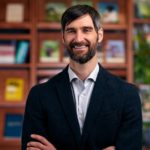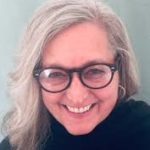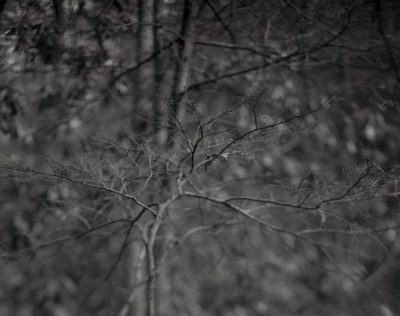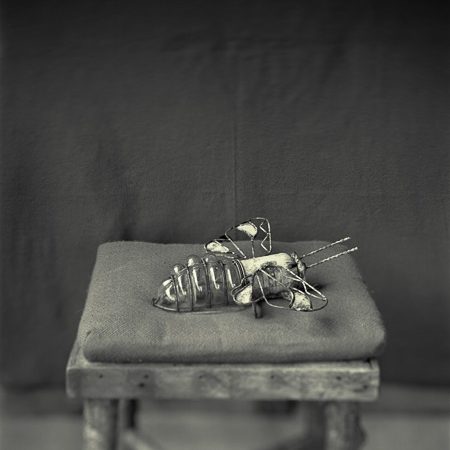What resources will we need to face the climate to come? In this interview, four climate activists speak to the need to cultivate community, compassion, and mindfulness to sustain our work on climate change now and in the decades ahead.
A few years ago, my otherwise not-religiously inclined college students began signing up for ten-day silent retreats at Buddhist meditation centers and walking the ancient pilgrimage route of Camino de Santiago. Especially the climate activists. I was a bit surprised. I teach in Oregon, land of the “none’s.” According to the surveys, we are the least religiously affiliated part of the country. Like their fellow activist millennials, the “Nones and Nuns”, they were searching.
At one level, my student’s questions are urgent and practical: “Should I drop out of college/quit my job to become a full-time climate activist — now?” “How do I learn to organize, or to engage in direct action, or to create a coalition — as quickly as possible/yesterday?”
Movement-building, electoral politics, and mitigation strategies are critical and the recent surge of activism in the Sunrise Movement, the global response to Greta Thunberg, and Alexandria Ocasio-Cortez’s support of the Green New Deal have inspired them. But then there are the deeper questions: “How do you find the energy to fight when it feels like there is no hope?” “How will we sustain ourselves emotionally in the climate to come?” “How do you stave off the despair?” But my students are hungry for answers to these questions.
When I first began teaching climate change in 2007, the despair was more distant. Today, it is palpable. Climate anxietyis a well-documented phenomenon. It is not just that my students know more now; they do. They have run the climate change simulation programs that show coastlines submerged, drought-induced famines, mass migration, and disease; they know the investigative reporting that has laid bare fossil fuel companies’ deliberate obscuring of the effects of climate change, and like their activist peers, they are outraged at the current administration’s and Republican Congress’ climate denialism. What’s different is that they have come into consciousness as adults alongside of climate change’s tangible effects and their sense of urgency is visceral: “Twelve years,” one said to me on the first day of class last term. “We have about twelve years to keep the warming to 2 degrees. That’s less than half how long I’ve been alive.”
I have started teaching directly to the existential experience of climate change (see my piece in the upcoming MAHB newsletter: “Teaching to the Existential Experience of Climate Change”): “The Inner Life of Activism”, for instance, provides a space for students to learn how to connect their inner life with the their work in the world and cultivate resources for mental and spiritual well-being. Aligned with the healing justice movement and the discipline of contemplative studies, it uses “critical first-person learning” for students to try out practices drawn from a variety of traditions, while learning about past social movements and the resources of the spirit that sustained them.
I was inspired to teach classes like this in large part by the individuals I know who have been working on climate issues for a long time who have not given into despair. They understand why my students were going on silent retreats and pilgrimages; indeed, they have done the same. They have found ways to keep their inner fires lit. I kept wishing my students could meet them. So, I decided to interview them.
What follows is a conversation with four of them who also know each other. Each of them is engaged in a different sector of climate work: policy creation, coalition building, climate and food justice, climate and the arts. They spoke of catalytic storytelling that shakes us out of paralysis and allows us to connect with climate change as lived story. They described carbon pricing as love manifest as responsibility. They talked about a visceral connectedness to all things that is the birth right of all beings, and the quiet, subtle, against-the-stream swimming that defines worth not as consuming but as extending our capacity for empathy. And they told stories of practices that shift the tectonic plates of our hearts and of activism fueled not by fear, but by love – of particular places, mountains, streams, and people.
The message from the interviews for my students – for all of us — is clear: Take risks. Take responsibility. Explore. Cultivate empathy. Create community. Tend your inner life. In doing these things, you will knit your inner and outer lives together and begin to lay down the pathways we will want to walk on into our future.
Camila Thorndike recently directed a campaign in Washington D.C. with the Chesapeake Climate Action Network that united over 100 organizations to pass the strongest sub-national climate law in the country. After graduating from Whitman College, Camila worked for the U.S. Institute for Environmental Conflict Resolution, led outreach for an Arizonan urban planning campaign, and spearheaded engagement for Firerock, a musical theater project on fossil fuels. In 2009 she worked with D.C. youth on energy efficiency in low-income households with the Mayor’s Green Summer Jobs Program. She later co-founded Our Climate, a grassroots national nonprofit that empowers the next generation of climate leaders to pass strong, fair carbon pricing laws. Camila is a Fellow of the Center for Diversity and the Environment, Sitka Fellow, Udall Scholar, Mic50 awardee, member of the Young Climate Leaders Network, a Grist 50 “Fixer,” recipient of the 2018 DC Environmental Network award, and 2019 Louis Bacon Fellow at the Harvard Kennedy School.
 Wesley Look is Senior Research Fellow for Resources for the Future.Wes earned a Bachelor of Arts from Wesleyan University, a Master of Science, Massachusetts Institute of Technology, and a Master in Public Policy, Harvard University. Prior to joining RFF, Look served as Advisor on Energy and Environment to the US Senate Finance Committee and ranking member Senator Ron Wyden (D-OR), advising Senator Wyden on a range of clean energy and climate policies, including the senator’s energy policy portfolio on the Senate Energy Committee. From 2007 to 2010, Look advised US cities on climate and energy policy as Program Officer with the International Council for Local Environmental Initiatives (ICLEI). Look is an expert on carbon pricing policy design.
Wesley Look is Senior Research Fellow for Resources for the Future.Wes earned a Bachelor of Arts from Wesleyan University, a Master of Science, Massachusetts Institute of Technology, and a Master in Public Policy, Harvard University. Prior to joining RFF, Look served as Advisor on Energy and Environment to the US Senate Finance Committee and ranking member Senator Ron Wyden (D-OR), advising Senator Wyden on a range of clean energy and climate policies, including the senator’s energy policy portfolio on the Senate Energy Committee. From 2007 to 2010, Look advised US cities on climate and energy policy as Program Officer with the International Council for Local Environmental Initiatives (ICLEI). Look is an expert on carbon pricing policy design.
 Navina Khannais the founding Director of the HEALl(Health, Environment, Agriculture, Labor)Food Alliance, a national multi-racial, multi-sector coalition of 55 organizations building collective power for food systems transformation. She has dedicated over 20 years to creating a more just and sustainable world through transforming food systems, and in 2014, her work was recognized with a James Beard Leadership Award. With a background in sustainable agriculture and food justice, she’s worked as an educator, facilitator, community organizer, and policy advocate, organizing across sectors and communities. Based in Oakland, Navina serves on the Board of Richmond’s Urban Tilth, advises the Real Food Media Project, and organizes with #Asians4BlackLives. A first-generation South Asian American, Navina’s worldview is shaped by growing up – and growing food – in India and the U.S.
Navina Khannais the founding Director of the HEALl(Health, Environment, Agriculture, Labor)Food Alliance, a national multi-racial, multi-sector coalition of 55 organizations building collective power for food systems transformation. She has dedicated over 20 years to creating a more just and sustainable world through transforming food systems, and in 2014, her work was recognized with a James Beard Leadership Award. With a background in sustainable agriculture and food justice, she’s worked as an educator, facilitator, community organizer, and policy advocate, organizing across sectors and communities. Based in Oakland, Navina serves on the Board of Richmond’s Urban Tilth, advises the Real Food Media Project, and organizes with #Asians4BlackLives. A first-generation South Asian American, Navina’s worldview is shaped by growing up – and growing food – in India and the U.S.
 Molly Sturges(Molly_Sturges.jpg), is the Founding Artistic Director of Littleglobe, a diverse artist collaborative devoted to arts and social changeand Creative Director of Firerock,a scalable, open-source DIY musical anyone can produce. Firerockis a project that catalyzes community engagement with climate change through the ancient practices of song and story— a mythical, warm-hearted, family-friendly musical production that illuminates our disconnection from the impacts of extractive energy. Performances are integrated with activities intended to create community and spaces for dialogue and sustained action in order to strengthen our connections, build resilience, and provide a powerful tool to support universal access to clean water, air, and energy.
Molly Sturges(Molly_Sturges.jpg), is the Founding Artistic Director of Littleglobe, a diverse artist collaborative devoted to arts and social changeand Creative Director of Firerock,a scalable, open-source DIY musical anyone can produce. Firerockis a project that catalyzes community engagement with climate change through the ancient practices of song and story— a mythical, warm-hearted, family-friendly musical production that illuminates our disconnection from the impacts of extractive energy. Performances are integrated with activities intended to create community and spaces for dialogue and sustained action in order to strengthen our connections, build resilience, and provide a powerful tool to support universal access to clean water, air, and energy.
Reckoning
Wendy Peterson Boring: Tell me how you got into your work on climate and where you see connections between your inner life and your work in the world?
Camila: Climate activism often starts in fear. At first, the motivation for me was in large part a fear of my own mortality. But then I realized that this is going to happen no matter what. So, what are your motivations then? Then, you can move to the things you love, the things you want to defend most. You can say, I love this mountain, this town, this child. I’m going to be driven by love. This work cannot be based on the promise of success.
At age seventeen, eighteen, nineteen, you are setting your course. For so many years it was, “Dream big, here’s the world!” Now it’s, “Here’s the world, we really hope you fix it!” There is this sense of unjust responsibility, this loneliness and anger. Why did you hand us all the problems all at once? A lifetime is so short given the magnitude of the problems. You start to really feel small in space and time. This forces a spiritual reckoning.
A key moment for me was Bush v. Gore in 2000. The first time I really prayed was on the eve of this election: “Please elect someone who would defend the world.” Gore was clearly that person. I also remember a trip visiting extended family in Australia where we snorkeled on the Great Barrier Reef and we could see the coral bleaching. I was scared of sharks. Then I swam with one. I realized nothing is really that scary. Whatisterrifying is the upending of the climate and ecosystems. In college I got involved in organizing with 350.org, the biggest club on campus. We went to Washington D.C. for a lobby day: 12,000 young people to support a cap and trade bill. It didn’t pass the Senate. The bottom fell out of the movement. This was a big turning point for me. I came to realize I had to reach to deeper resources to sustain the work over the long haul.
Wes: As much as the response to climate change needs to be about politics and policy design the climate crisis is also, and perhaps even more so, about walking the path rightly as agents of change. We all need training of the heart – the kind of training that allows us to see the forces at work in hearts, to develop skills so we can be well resourced.
When I went to India and got to study with the Dalai Lama I found myself taking a Boddisatva vow. This was a first step and it felt huge. I was about twenty and asking, “What can I really lean on and root into? What reflects my true self?” What allowed me to accept this religion was its fundamental orientation towards service. Also, key for me was the idea of, “Don’t take our word for it – try it.” I could see for myself whether it had integrity.
The way of the Boddhisatva, “May I be a boat for those who need oceans to cross” was inspiring, especially coming from the individualist model in the West. “May I be a benefit for all beings.” When I connect into this, it’s not just a moral high ground.I’m reminded of the interconnectivity of all beings. I feel held as much as I hold. That sense of connectedness is really visceral. It’s the birth right of all beings. When the self falls away, we naturally realize connection. Into that space flows love and compassion. From that place there is the most ferocious, beautiful, grounded, resilient call to act.
Navina: I came to what I do through the idea that food can restore our relationship with each other and the land. I don’t think that climate work, or work in food justice, can be separated from heart work, spirit work. By the time I was seventeen, it had become pretty clear that the current agricultural system is an expression of our domination over nature. The systems that are exploitative today are only possible because of the food systems that we have; they arise from the fact that we are so far removed from our food, and from the consequences of how we produce our food — from life. The origins of our climate chaos are rooted in our food chaos. And vice versa. You see this with the beginnings of climate-induced mass migrations, as in Syria, where they were no longer able to grow food due to climate change induced drought. Then there are issues of access: who controls your seeds, and who has access to land. Food issues and climate issues are intertwined.
Molly: The way I got into this work was just by doing it, guided by something in my heart. I came from an activist and contemplative background, but I had burnt out as an activist. I began to be drawn to art, liturgy and ritual – in an embodied way, working inter-generationally. I worked in Ireland, rural New Mexico, all over, putting together teams of people to figure out how to collaboratively create expressions that heal us. I was often drawn to shadow territory; I wrote music for people in hospice, people who are dying.
Climate is the hardest topic. People get overwhelmed. It’s hard to make it intimate. It’s hard to make us feel successful and connected. It’s very hard to protect something if we don’t feel a relationship to it. I had to listen deeply to many people and to fail again and again — to go back into the forms and to the engagement process. I had to figure out what the right scale was. I didn’t want anyone to come out of the theatre feeling like, “I suck, all humans suck, and we are stuck.” I wanted to createcatalytic storytelling. I think we did.
Sourced
Wendy: Tell me about where your resiliency comes from. How do your inner fires stay lit? How do you keep going when things get rough?
Wes: It’s been such a wild ride since 2016 working on climate. The part of my life that is tied to this whale of climate policy — it’s been both heartbreaking and inspiring. This is where the Buddhist practice has been so central: Can I stay on the horse? Can I stay on the horse when it’s bucking and throwing me off? Can I breathe into the pain of it all? Can I keep seeing the opportunity? What I asked when I was beginning this path was, “Can I trust this?” It’s actually been the most trust worthy thing. I can feel this connectedness in my belly that is so much bigger than me. The idea of anicha— you can’t hold onto anything has been an important pole for developing equanimity. This goes back to the question of “Where do you put your root?” The idea is to root in the Dharma rather than in the changing political situation.
At the same time, the past two years have been inspiring because, unexpectedly, there is a strong counterpoint to Trump emerging. States feel emboldened and passionate and can move into the vacuum because we have this terrifying counterpoint in Trump. Even federal pricing work is still alive. A number of Republican led carbon-pricing efforts are alive, albeit under the radar. There is the idea of bringing together states to ask how we can put a cap on the transportation sector. All of this progressive work is being catalyzed in response to Trump. It’s being catalyzed with aching hearts, but it is being catalyzed.
Navina: It’s easy to get caught in the fear and paralysis of the current political situation. We get stuck in our heads, or folks are solely in reactive mode. There are many structures in place that make this reactivity true — so much historical trauma and inequity suffered by communities. But our actions are a reflection of what we prioritize, what we believe in. Our inner work is reflected in how we act, what we do.
Camila: As climate activists, we don’t come into the room with money, insider knowledge or access. What we have is the strength of our convictions, authenticity, and the joy and meaning that we find around protecting the sacred. This draws people. I know that the person who brings light into the room attracts people. Some people get good work done from anger. But if this is a marathon not a sprint, I need deeper sources. I had to have enough campaigns that I thought I would win that I didn’t in order to begin looking. I began to deepen my Buddhist practice, and recently lived in an intentional Buddhist community.
I can’t do my work if I’m burnt out, tired, or distracted, or if I’m assuming I’m going to lose. Meditation practice has taught me to loosen my grip. I’m not my thoughts or my body. Meditation teaches you that all of this is impermanent. You learn over time to dissociate; the impermanent things lose their hold over you. You can become the driver. Then you can know who is the “you”. You can sink into that “you,” and your grip starts to relax. Then the unconditional happiness can dispel the fear.
I had a mentor who said something very important: “You need to be replaceable: figure out how. You are giving your gift in a whole, long lineage. You have ancestors who have been doing good work; you will pass your work on. It is not something you can accomplish in a year or a decade or a single life.” There is also that quote by monk Nisargadatta Maharaj, “Love tells me I am everything; wisdom tells me I am nothing; between those find your balance.”
Molly: Creative work is essentially a spiritual practice. The inspiration for me was never about creating the “right” art. It was about creating the right healing catalyst. Climate change is a crisis of the spirit. It is about calling people into relationship in a way that honors our full selves. It is not just transactional. So many climate activists don’t take the time to do “how we gather” differently. I start the creative process, every rehearsal, ever session by gathering differently. If we are tackling fragmentation, then we need to draw on a collective wisdom base.
Embodied Practices
Wendy: Political movements tend to focus on short-term gain. How do you sustain the long view? What practices do you engage to create an alternative sense of identity and community?
Camila: Climate is a really intense version of change, impermanence. Silent retreats are necessary. The time away gives you access — a portal — into the truth that is really hard to find, and access to depths of freedom and happiness that are not bound by circumstance. Silence is necessary to access the spring within that is not bound by circumstance. I need to go into the silent, the dark. Also, it is so important to take time off, to play. Being a hardcore activist for many years, time off seemed like a dirty word. This value of unceasing work is part of American culture, but it’s intensified in activist circles. I began to ask, “Who is actually telling me to run myself into the ground?” No one! Sangha – community — is also essential. You need people around who share your values, including the value of taking care of yourself. You have one life, a joyful life. You are the only one who can insure that.
Navina: When I am not taking care of myself, it shows up in how I react to people. One of the main waysI care for myself is being part of an amazing community with shared values and a shared vision — marked by honesty, fierce love for each other, and commitment to being our whole selves. We are actively moving towards that every day in ways that are reflected not only in the work, but also in how we relate to each other. There is nothing transactional about the way we relate. We share meals, watch sunsets, dance in the streets. I draw deeply on this.
Creating community is very intentional. It was a year-long process to create the HEAL Alliance Anchor Team. I gathered fifty partners together to create the planks, naming what we really want. I went to the literature about food sovereignty, did expert interviews, compiled results, and did surveys about what is actually transformative, what is politically feasible. Then, I gathered people together to talk what we love, what we care about, and to write what it was we really wanted. A lot of the people I had only known in a transactional ways before in policy work. But this process gave me a way to hear from people about what they love, what they care about. Out of it emerged a community with accountability,a commitment to collective leadership, and supportive of our whole selves.
Wes: Daily practice is really important. The retreats have also been important; that’s where the deep insight comes from. The insights gained from the retreats can shift the tectonic structure of our hearts and mind. We can access insights from retreats in our day to day life. Sitting daily with companions, even just for fifteen minutes, can make a huge difference. Having teachers who can continue to reflect things back to me, to see how the practice is continuing to grow, is also important.
Metta practice provides a rich infusion of love and kindness and goodness to the heart — in the neuroplasticity of the brain, a really strong orientation towards kindness. It’s amazing how much ugliness there is in the climate movement – power games, competition, back stabbing. Darhma isabout something different. It is about swimming against the stream — the drive to consume more, achieve more, become more. That quiet, subtle against-the-stream practice will always be the endangered species. Being wide eyed about what it takes to build a practice that can stand against the flood of capitalism is key.
Molly: I begin each Firework rehearsal with mindfulness. We begin by asking how we can come into relationship with ourselves and each other. We begin with asking how to listen, how we can cultivate empathic spaces. A lot of art projects lack a foundation that allows the work to land. The contemplative work builds a foundation, an inner flexibility and an openness that you can then activate on a community level. In the arts it’s hard, you never know where a story will land and how people will remember it. The arts can activate the heart, but without building a foundation, something gets lost. I am constantly working on this edge.
I committed ten years to the Firework project. It almost physically killed me. It was the hardest project I’ve ever taken on. There is something about climate change — taking on this level of fragmentation. It required skin in the game. I had to keep choosing it, over and over again. I had to come to my own healing in order to complete it. This project wore down artifice and ways of being in the world that weren’t in deeper alignment. The consequence is that I, too, had to do that. It demanded showing up even when it was incredibly uncomfortable and scary, having encounters without a formula to follow, the courage to say that this matters, we can do this.
Hope

Wendy: For many people, when looking at climate change, it is difficult sustain hope. Some argue we shouldn’t even use the word hope, that it has become a stand-in word for inaction. Do you have hope? What is it you hope for? If not hope, what words capture what motivates and sustains you in your work?
Camila: Optimism is passive. Hope without engagement and risk taking, without having skin in the game, without the possibility for defeat, is passive. Optimism is when the cake is already baked and it’s going to come out great. Hope invokes a whole world of the unknown. My hope is that in tiny ways, or maybe in huge ways, humanity can fulfill its potential. This can happen with one person, when they claim their voice, or it can be an election, for instance in Virginia when the first transgender delegate was elected into office. It is in all thosemoments when people wake up, take agency, and publicly declare the values that make us human.
In a wonky, jargon-laden space, the foundation for my work is love. The carbon tax is love manifested as responsibility. It is not a punitive thing. If you’re going to use this energy, you are going to benefit from it. It has a cost, an externality, and you need to be responsible. Our society says, “Get yours and screw anyone else.” But everyone knows when you live with roommates, there is the kitchen sink – you do your dishes. You are respectful of others’ time, their lives. A while ago, I was there with my grandma, whom I loved, as she died. How would you treat your grandmother on her deathbed? It was so hard, but I wanted to hold her hand. As our world dies, we should be holding its hand and holding each other’s hands.
Molly: People need to not only sense interconnection, they also need to feel inspired to act, to know that what they do now affects everything. After our show, you can’t leave without four things: 1) You know the situation, 2) You know what you can do, 3) You participate in the music and songs, and 4) You can connect with other people. Cultivating agency is key. It’s not getting everyone onto one plan. It’s igniting what is each person’s spark. We light that and get people ready for commitment for the long term. We are creating emotional momentum, inspiration, and a sense of belonging to a diverse activism.
Navina: Climate chaos is happening whether we want it not. It is already causing pain, death, and disease. It is not about the idea of some Utopia — not in our lifetime or the lifetimes to come. The real questions are: How are we showing up right now? What are we practicing right now? The cultural stories of individualism, ego, scarcity, and competition have gotten us to where we are. The question now is: Can we let go of those old stories, can we live into something that is different? Can we live into radical love? I don’t know if I’d call it hope; I’d maybe just call it “love”. Somebody said to me once that hope is still casting a seed of doubt. We don’t have room for doubt. On the other hand; we have no idea what is going to evolve. The only thing we have control over is how we show up right now, in this moment.
Wes: This work can be so soul-crushing, so daunting. There are so many difficult interactions. Despite that or maybe even because of that, when there is this rootedness in a spiritual tradition, it makes all of this an amazing time in the wilderness. It’s so exciting to be in the midst of the journey of all it, to really be face to face with the unpredictable emergent reality, and to recognize that there is agency. And I can meet it when I am awake. I can meet it with some degree of intentionality and freedom. I can learn an intentionality that is generative, that affirms the sacred, and that is grounded in love, wisdom, and generosity.
Wendy Petersen Boring is a scholar, writer, and activist, and Associate Professor of History and Religious Studies at Willamette University in Salem, Oregon. Her teaching and research includes the cultural and environmental history of Western civilization, medieval history and philosophy, contemplative studies, climate change, women and gender studies, and food justice. Wendy holds a Ph.D. from Yale University and a Master of Arts in Religion from Yale Divinity School. She lives in Corvallis, Oregon with her spouse and children. wpeterse@willamette.edu
Image credits
Being (from the series, I have Gone), Green River Preserve, NC, March, 2008.
Digital scan of 11×14 photographic negative
Pradip Malde
http://pradipmalde.com/ihavegone/
Heart Sutra i (from the series, I Have Gone)
Green River Preserve, NC, March, 2008
Digital scan of 8×10 photographic negative
Pradip Malde
pradipmalde.com/ihavegone
The MAHB Blogis a venture of the Millennium Alliance for Humanity and the Biosphere. Questions should be directed to joan@mahbonline.org
The views and opinions expressed through the MAHB Website are those of the contributing authors and do not necessarily reflect an official position of the MAHB. The MAHB aims to share a range of perspectives and welcomes the discussions that they prompt.

